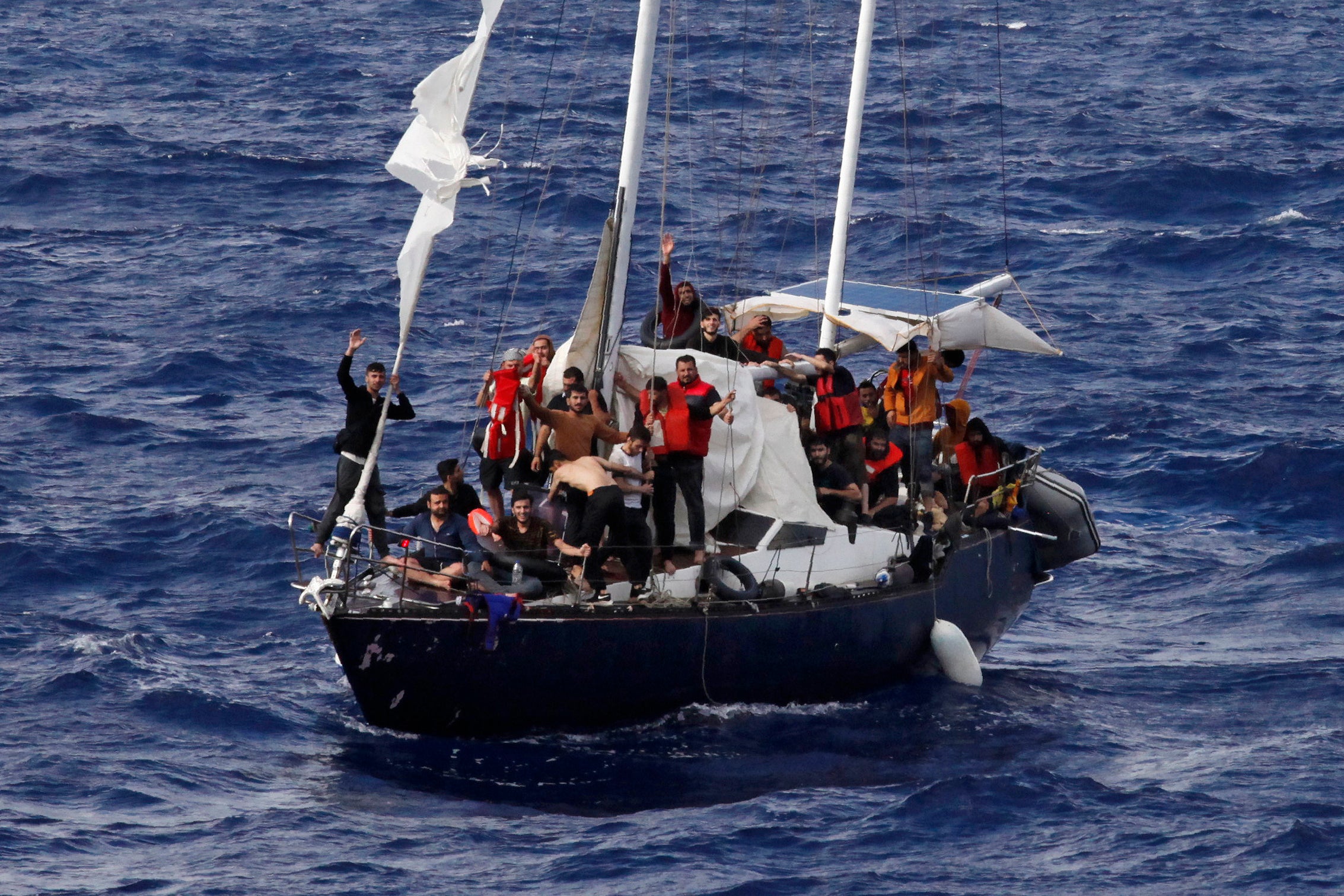Libya arrests 2 suspected traffickers, returns 53 to Egypt
Officials say Libyan authorities have arrested two suspected human traffickers and facilitated the return of more than 50 Egyptian migrants to their home country

Your support helps us to tell the story
From reproductive rights to climate change to Big Tech, The Independent is on the ground when the story is developing. Whether it's investigating the financials of Elon Musk's pro-Trump PAC or producing our latest documentary, 'The A Word', which shines a light on the American women fighting for reproductive rights, we know how important it is to parse out the facts from the messaging.
At such a critical moment in US history, we need reporters on the ground. Your donation allows us to keep sending journalists to speak to both sides of the story.
The Independent is trusted by Americans across the entire political spectrum. And unlike many other quality news outlets, we choose not to lock Americans out of our reporting and analysis with paywalls. We believe quality journalism should be available to everyone, paid for by those who can afford it.
Your support makes all the difference.Libyan authorities arrested two suspected human traffickers and facilitated the return of more than 50 Egyptian migrants to their home country, officials said.
Fifty-three Egyptians landed in Cairo’s international airport on a private flight late Sunday after authorities in Libya’s capital of Tripoli arrested them for attempting to travel by boat to Europe in recent weeks, Egypt’s Foreign Ministry said.
The arrests and return of the would-be migrants came amid a spike in dangerous crossings and attempted crossings from the North African nation to Europe over the Mediterranean Sea
Libya’s chief prosecutor's office said Sunday a suspected trafficker, known on social media platforms as Haj Hakeem, was arrested on accusations he detained and tortured Egyptian migrants for ransom.
The office said in a statement the suspect also faces accusations of human trafficking and coordinating recent migrant sea crossings. Prosecutors ordered him to remain in custody and issued arrest warrants for others who were not name in the statement.
Attached to the statement were graphic photos showing what the prosecutors said are Egyptian migrants half naked with their hands bound behind their backs. At least three masked people appear to be beating and torturing them.
Another suspected human trafficker, a Somali national named Hassan Qeidi, was arrested over the weekend, the prosecutor’s office said in a separate statement.
It said Qeidi faces accusations including leading a human trafficking network in and outside Libya. He was also accused of killing dozens of migrants, sexual misconduct against female migrants and mistreating migrants for ransom from their families.
It was not immediately possible to reach family members or lawyers for the two suspects.
Libya has for years been a hub for African and Middle Eastern migrants fleeing war and poverty in their homelands and hoping for a better life in Europe. The oil-rich country plunged into chaos following a NATO-backed uprising that toppled and killed longtime autocrat Moammar Gadhafi in 2011.
Traffickers have exploited the chaos and often pack desperate families into ill-equipped rubber or wooden boats that stall and founder along the perilous Central Mediterranean route. Thousands have drowned along the way. Traffickers have been implicated in widespread abuses of migrants, including torture and abduction for ransom.
There has been a spike in crossings and attempted crossings, mostly from Libya but also from Tunisia in recent months. Libya’s coast guard has intercepted thousands of migrants.
The U.N. migration agency has said more than 23,580 migrants were intercepted and returned to Libya so far this year, despite repeated warnings by international rights groups about the situation in the North African county.
At least 1,100 migrants were reported dead or presumed dead in numerous boat mishaps and shipwrecks off Libya in 2021, the International Organization for Migration said earlier this month.
The European Union has over the past years partnered with Libya to prevent migrants from making the dangerous journey by sea to Europe. Rights groups say those efforts have left migrants at the mercy of armed groups or confined in squalid detention centers that lack adequate food and water.
An Associated Press investigation in 2019 found that militias in Libya tortured, extorted and otherwise abused migrants for ransoms in detention centers under the nose of the U.N., often in compounds that receive millions in European money paid to Libya’s government to slow the tide of migrants crossing the Mediterranean.